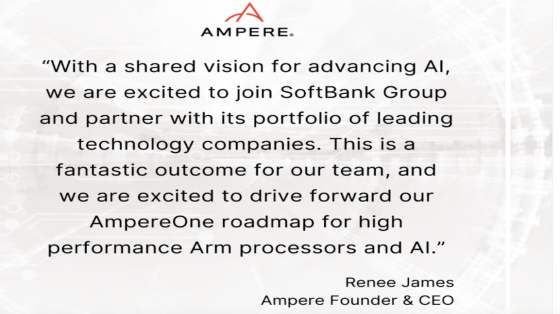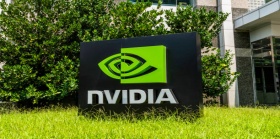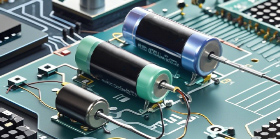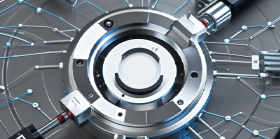Chip industry, heavyweight acquisition
SoftBank announced on Wednesday that it has agreed to acquire Silicon Valley chip startup Ampere Computing for $6.5 billion, doubling its bet that technology derived from smartphones will dominate global data centers.
This transaction also reflects the belief of this Japanese conglomerate that Ampere's chips can begin to play a significant role in the field of artificial intelligence, where Nvidia has achieved the highest returns to date.
Ampere was founded eight years ago and primarily sells data center chips based on Arm Holdings technology. Arm Holdings is a British company whose authorized chip designs have provided support for almost all mobile phones. SoftBank acquired Arm in 2016 and has been committed to expanding the application of Arm based chips for various tasks.
Sun Zhengyi, Chairman and CEO of Softbank, said in his prepared speech: "The future of AI needs breakthrough computing capabilities." "Ampere's expertise in semiconductor and high-performance computing will help accelerate this vision and deepen our commitment to American AI innovation."

SoftBank stated that it will operate Ampere as a wholly-owned subsidiary under its own name.
This sale comes at a time of a series of transactions and alliance changes, driven by strong market demand for chips used to support AI applications such as OpenAI's ChatGPT. Especially SoftBank, it has announced a series of transactions in order to play a greater role in this field.
In January of this year, Masayoshi Son announced a plan called "Stargate" with President Trump, while OpenAI CEO Sam Altman and software manufacturer Oracle Chairman and founder Larry Ellison also participated. This is the most eye-catching move of the plan so far. Oracle is Ampere's largest investor and client.
Masayoshi Son, Altman, and Ellison stated that Stargate will invest up to $500 billion to establish a series of data centers in the United States to support OpenAI's operations, starting with a data center in Texas. Nvidia is a key technology partner of the joint venture, and the chips supplied by the company are called graphics processing units (GPUs), which account for the majority of AI computing.
Another type of chip also plays a core role in artificial intelligence. These chips are microprocessors designed by Intel, AMD, and Arm for processing general-purpose computing. These chips work together with GPUs, known as "host" processors, to manage artificial intelligence tasks, such as building special software programs called models. Usually, for every four Nvidia GPUs sold, one microprocessor is used.
These microprocessors are sometimes used to process AI tasks called "inference," including providing query answers for chatbots. So far, chips from Intel and AMD have almost occupied all AI host processors and microprocessors used for inference.
But some influential companies hope to change this situation. Nvidia has begun to vigorously promote Arm processors as an alternative to host microprocessors to replace Intel or AMD chips.
This is related to a lot of money. Market research firm IDC predicts that the market size for microprocessors used in artificial intelligence will grow from $12.5 billion in 2025 to $33 billion by 2030.
AMD and Intel have pointed out that transitioning to Arm may require laborious software changes. They added that Nvidia does not fully support Arm technology and still supports its chips as an option for its latest GPU.
Ronak Singhal, Chief Architect of Intel Xeon Data Center Chips, said, "Nvidia remains an important partner for us.
Ampere's microprocessors are primarily aimed at the general data center market. But the company recently announced plans for a chip called Aurora, which has up to 512 small computing engines. The company says this design is particularly suitable for AI inference applications.
The company, led by former Intel executive Ren é e James, has achieved some success. But the biggest investors in this field - giants such as Amazon, Google, and Microsoft - have recently been more focused on developing their own microprocessors based on Arm technology, rather than relying on this startup company.
Oracle bone script is an exception. The company provides online services driven by Ampere chips and has disclosed its equity and debt investments in the company. As of May, Oracle stated that it holds a 29% stake in Ampere; After deducting losses, its investment value is 1.5 billion US dollars.
SoftBank stated that as part of the acquisition, Oracle and large private equity firm Carlyle Group (also a major investor in Ampere) have agreed to sell their shares in Ampere.
Related Information

- 2025.05.12 Intel terminates Deep Link program



